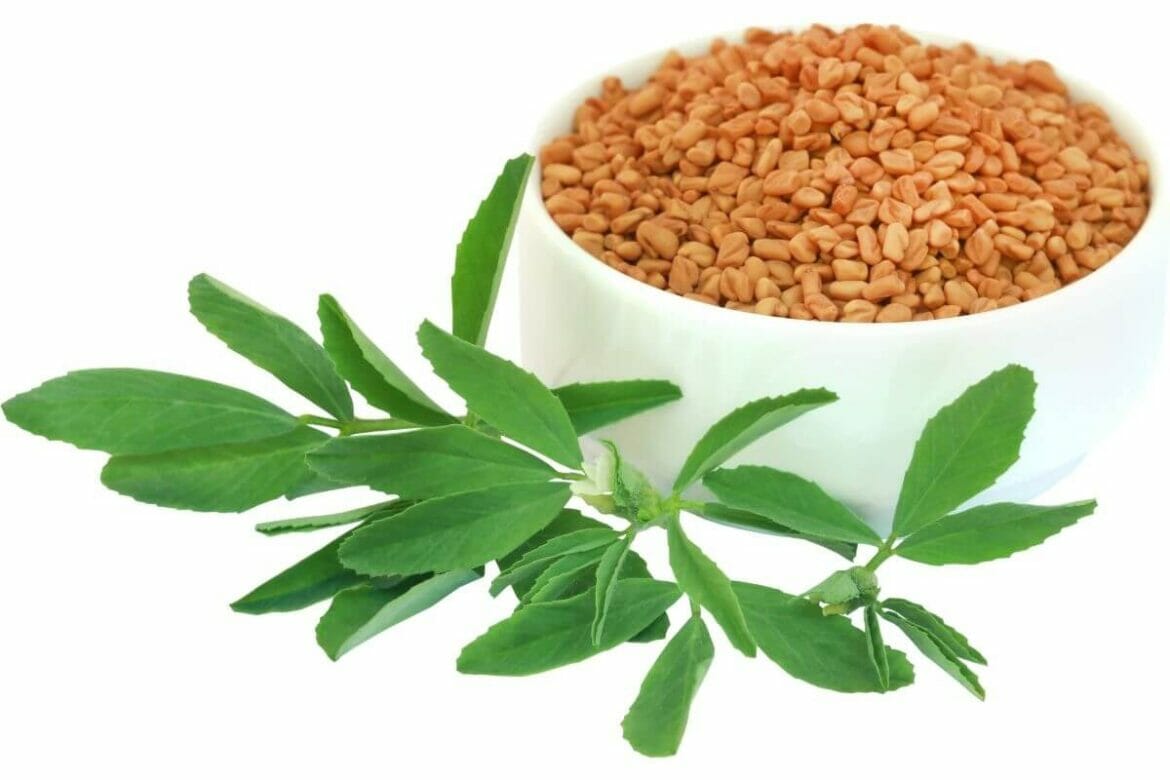Fenugreek: Nutrient profile | Benefits | Usage | Contraindications | Takeaway
Several ingredients in your kitchen cabinet may look too simple and naïve. Yet, they might be offering numerous health benefits. One such ingredient is fenugreek.
Fenugreek is a common herbal plant native to Asia and the Mediterranean region, cultivated worldwide. Fenugreek leaves and seeds have been a part of the Indian cuisine. The simple herb also has been a valuable part of traditional medicine systems. It has been used as a folk remedy to treat common health problems.
The plant is around 2 to 3 feet tall with green leaves, white flowers and pods that contain golden-brown seeds.
Nutrients present in fenugreek:
Fenugreek is an excellent source of dietary fibre. It contains vitamins A, C, and B vitamins riboflavin, niacin, pyridoxine, thiamine, and folate, along with an impressive amount of iron. The nutrient profile also includes an array of minerals such as potassium, sodium, copper, magnesium, manganese, calcium, phosphorus, selenium, and zinc. Being of plant origin, fenugreek has phytonutrients as well, and like other nuts and seeds, it is rich in protein.
Nine health benefits of fenugreek
Fenugreek offers a varied set of medicinal benefits including but not limited to the ones listed below.
- Reduces blood sugar levels in diabetic patients – Due to high fibre content, it improves glucose metabolism. Also, fenugreek seeds improves insulin sensitivity. Thus, fenugreek intake (both seeds and leaves) help prevent blood sugar spikes and manage blood sugar levels.
- Enhances breast milk secretion – Studies prove that fenugreek seeds significantly improved breast milk supply.
- Improves testosterone levels in men – Furostanolic saponins present in fenugreek seeds stimulate testosterone production, enhancing sex libido in men.
- Eases menstrual cramps – The antispasmodic and analgesic properties help reduce menstrual cramps and the pain associated with it.
- Cures heartburn – A natural antacid, fenugreek water 30 minutes before a large meal decreases heartburn and acid reflux.
- Manages cholesterol levels – The saponins and galactomannan in fenugreek seeds lower total cholesterol and LDL cholesterol levels and increase HDL cholesterol levels. Some studies show a reduction in triglycerides as well.
- Promotes weight loss – Galactomannan in fenugreek seeds slows down the carb and fat absorption, gives you a sense of fullness and makes you consume less food in the next meal, thus aiding in weight loss.
- Protects against inflammation – The anti-inflammatory properties of the seeds help reduce inflammation in conditions such as arthritis.
- Treats skin and hair problems – Topical application of fenugreek seeds’ paste on your skin destroys free radicals. Thus, fenugreek can offer you several benefits, including glowing skin, reducing blemishes, preventing skin breakouts and acne, and can help reduce inflammation due to skin allergies or psoriasis. Furthermore, fenugreek seed paste when used as a hair mask can prevent premature greying, promote hair growth, cure dandruff, and improve hair health.
5 Ways to use fenugreek
Fenugreek is available as leaves, seeds, powder and as supplements. And you can use it in a myriad of ways to reap the benefits.
Did you know?
You can easily grow fenugreek at home. Click here for further reading on growing fenugreek at home.

Including fenugreek for general health benefits
For maintaining general health, fenugreek can be easily squeezed into your diet. A few ways are mentioned below:
1. Sprinkle fenugreek powder on dishes
You can sprinkle some fenugreek powder on your favourite soup or salad as a spice for added flavour and aroma and of course its health benefits.
2. Eat fenugreek leaves
The leaves can be used by cooking it just as you would cook any other green leafy vegetable.
Including fenugreek for its therapeutic benefits
Furthermore, if you intend to try out fenugreek for its therapeutic effects, you may try the below methods.
3. Fenugreek water
Soak a spoonful of fenugreek seeds overnight in a glass of water to make fenugreek water.
Drinking this water in the morning on an empty stomach can help regulate blood sugar levels and aid in weight loss.
Fenugreek water, when consumed by women during their periods, provides relief from the menstrual cramps. Also, drinking a glass of this water 30 minutes before your two big meals of the day can give immense relief from heartburn and acid reflux.
4. Fenugreek tea
You can prepare fenugreek tea by adding a teaspoon of fenugreek powder to hot water and allowing it to seep for a few minutes.
The tea can lessen bloatedness and heartburn. Lactating mothers can consume the same for increasing breast milk production.
5. Fenugreek paste
Fenugreek paste offers fantastic benefits when used on your hair. Soak at least two tablespoons of fenugreek seeds in water overnight and make a paste out of it. Apply the paste as a mask on your hair and allow it to sit for at least 20 minutes before rinsing it off. If required, you can use a mild shampoo or a herbal hair powder for washing your hair. This simple process can help with most of your hair care worries such as dandruff, hair fall, lack-lustre hair and so on.
You can also mix the fenugreek paste with other ingredients such as yoghurt or aloe vera gel to make a face mask. Apply the mask on your face for 15 minutes and rinse off with lukewarm water to bring out the natural glow.
Word of caution:
Just because something is natural does not mean it is entirely safe. In fact, some of the herbs tend to be highly potent that they can cause undesirable effects, especially if consumed in excess or consumed as pills available as supplements.
- Pregnant women should be mindful of the quantity, as there is a risk of earlier onset of labour.
- If you are on diabetes medication, there is a risk of the blood sugar level dropping too low. So, if you decide to use fenugreek for diabetes management, make sure your existing medication is adjusted accordingly.
- And in case you are considering fenugreek supplements to boost testosterone levels, you should be careful if you have any underlying heart conditions.
The Takeaway
Thus, as can be seen, this simple herb taken in the right manner can be immensely beneficial for your well-being, including managing your blood glucose and blood cholesterol level. But you cannot consider this a magic pill for all your health woes. Following a good lifestyle, including a proper diet, sleep routine and exercise is still essential to feel the difference.
Images from canva.com


